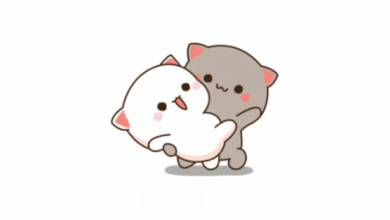Exploring the History of DJ Culture in New York

Introduction
New York City, often considered the cultural capital of the world, has played a pivotal role in shaping various art forms, and one such influential movement is the history of DJ culture. From the underground parties of the 1970s to the pulsating beats of today’s electronic dance music (EDM) scene, New York has been at the forefront of DJ innovation. dj new york
The Birth of DJ Culture in New York
The roots of DJ culture in New York can be traced back to the early 1970s when block parties in the Bronx became the epicenter of a musical revolution. Influential figures like DJ Kool Herc, Grandmaster Flash, and Afrika Bambaataa pioneered the art of using turntables to manipulate and extend the beats, creating a unique sound that laid the foundation for hip-hop and DJ culture.
From Block Parties to Nightclubs
As the popularity of DJing grew, the scene transitioned from block parties to the city’s burgeoning nightclub scene. The Paradise Garage, an iconic venue in the late 1970s and 1980s, became a breeding ground for DJ innovation. Larry Levan, the resident DJ at Paradise Garage, is often hailed as a pioneer who shaped the evolution of dance music.
Hip-Hop and Turntablism
New York’s DJ culture also played a pivotal role in the rise of hip-hop. Turntablism, the art of manipulating sounds using turntables and a mixer, became a fundamental element of hip-hop music. DJs like Grandmaster Flash and DJ Jazzy Jeff became legends, showcasing their skills in scratching and beat juggling.
Read also Considerations When Choosing the Best Plumbing Services
House Music Takes Over
The 1980s saw the emergence of house music, a genre deeply rooted in the dance culture of New York. Clubs like The Warehouse and the Paradise Garage became synonymous with the pulsating beats of house music. DJs like Frankie Knuckles and Larry Levan were instrumental in popularizing this genre, laying the groundwork for the global electronic dance music (EDM) phenomenon.
The Rise of Techno and Rave Culture
In the 1990s, techno music found a home in New York, and rave culture took the city by storm. Underground warehouse parties, characterized by their immersive light shows and electronic beats, became the hallmark of New York’s electronic music scene. DJs such as Carl Cox and Richie Hawtin brought techno to the forefront, influencing the trajectory of electronic music worldwide.
Contemporary DJ Culture in New York
Fast forward to the present day, and New York remains a hub for diverse DJ cultures. The city hosts an array of music festivals, including Electric Zoo and Governors Ball, showcasing a mix of established and emerging talent. DJing has evolved from vinyl records to digital platforms, with artists using a combination of technology and creativity to push the boundaries of sound.
Conclusion
New York’s DJ culture has evolved from the humble beginnings of block parties to shaping global music trends. From hip-hop and house to techno and beyond, the city’s vibrant nightlife continues to influence the trajectory of DJ culture. As the beats resonate through the streets of New York, the city remains a testament to the enduring power of music and the DJs who continue to shape its rich history.



